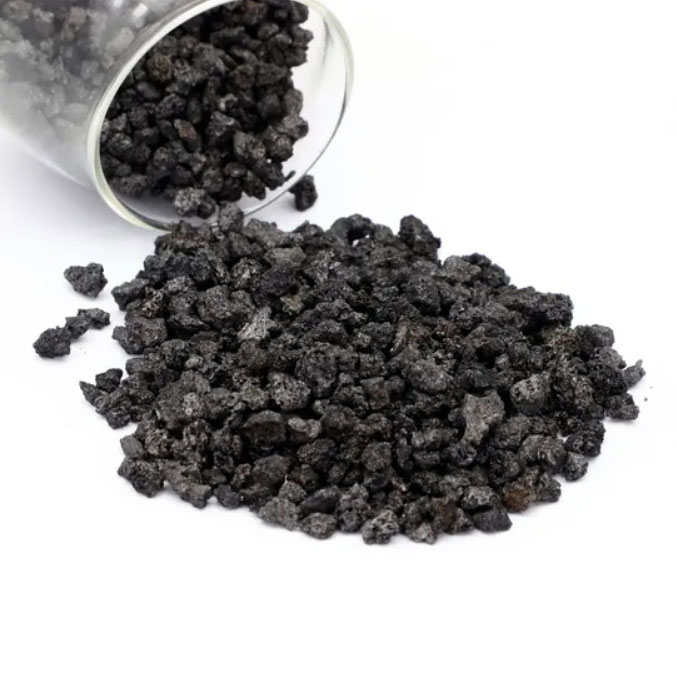
Petrol coke can also be referred to as fuel coke or petcoke. It is a solid byproduct of refinement of oil. It is formed when heavy crude oil residues undergo the coking process under high temperatures. They transform into a tough material with low moisture content and volatile matter. The resulting petcoke is unique in its physical characteristics that make it suitable for a variety of industrial processes as well as fuel sources.
The most popular types of petcoke for steel production are calcined and sponge. Sponge petcoke is not a high quality product, with sulfur and heavy metals that may interfere with the process of producing aluminum. Calcined petcoke is a higher-quality material that has been heated to remove volatile matter, which makes it more suitable for use in the metallurgical sector.
Aside from its industrial uses, petroleum coke is a very energy-rich fuel that can be burned to produce electricity and heat. Its ability to withstand high temperatures and its resistance to corrosion make it a great raw material for manufacturing graphite electrodes. It can also be utilized as a refractory material as well as a catalyst in various manufacturing processes.

Petroleum coke, despite its numerous industrial uses, can be dangerous. It is a strong irritation that should be handled carefully. Inhaling it can cause respiratory problems. It is also a fire hazard, therefore, it is important to use the appropriate precautions to avoid it. Wearing protective gear avoid contact with the skin, and using proper ventilation are all vital.
Petroleum coke has a myriad of industrial uses, but it is used primarily to replace coal in furnaces and power plants. It is also a highly valuable carbon material that can be used to make various carbon-based products including carbon brushes and graphite electrodes. It is also being studied as a possible fuel for fuel cells which are devices that generate electricity through the chemical reaction between oxygen and hydrogen.
Petcoke must be tested before it is sold to ensure that it meets the legal requirements and is safe for industrial machinery. It should also contain as low a percentage of greenhouse gases as it is possible. Conducting a sulphur, heavy metal, and carbon tests on petcoke allows producers to offer high-quality products to their customers and reduce their environmental footprint at the same time.
The heavy metal, sulphur and fixed carbon levels of petroleum coke vary according to the refining process it goes through and the type of crude oil used in the process of making it. However, regardless of how it is produced coke from petroleum has significant effects on the environment because of its combustion and release of toxic pollutant. This negative impact is reduced by increased efficiency in combustion, and advanced carbon storage and capture technology. These efforts are helping bring petroleum coke in line with global sustainability targets. In addition the refractory and energy industries are taking steps to improve efficiency and decrease waste by recycling as much of their petcoke as they can.

Write a Message